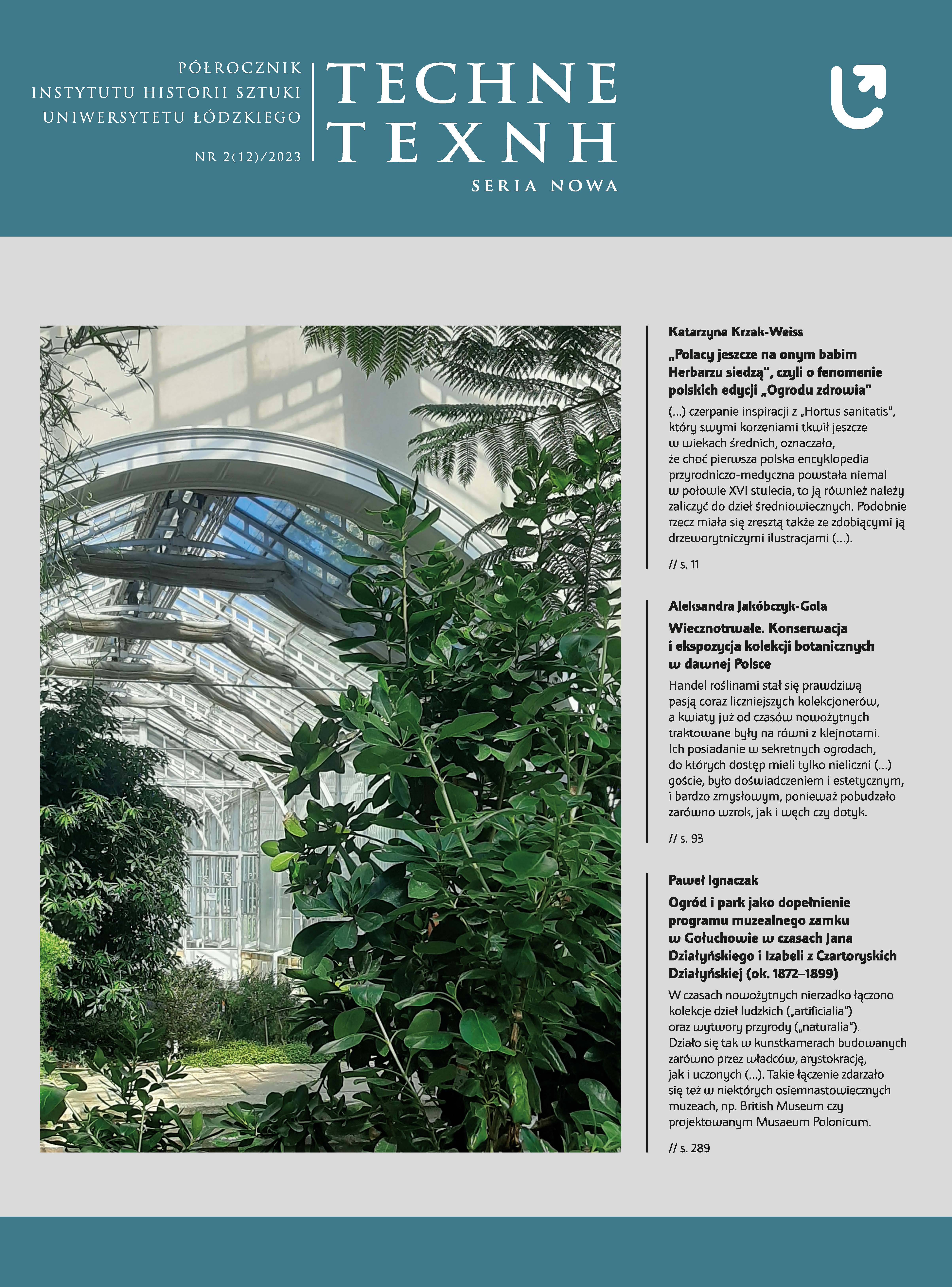Parc de Sceaux near Paris – transformations of the garden complex and its present state
DOI:
https://doi.org/10.18778/2084-851X.16.11Keywords:
Sceaux, André Le Nôtre, French gardens, baroque gardens, revitalization of garden layoutsAbstract
The park in Sceaux near Paris was created at the end of the 17th century according to the plans of Andre Le Nôtre for the Minister of Finance of Louis XIV, Jean-Baptiste Colbert, along with a palace in the French Baroque style. Later it was expanded and transformed. During the French Revolution, the property was confiscated by the state and transformed into an agricultural school. The park fell into decline and most of the statues were moved to Paris. In 1798, the estate was sold to a private entrepreneur. On the site of the demolished palace, in 1856–1862, the next owner, the Duke of Treviso, built a new one in the Louis XIII style, designed by Auguste Théophile Quantinet.
The park was then devastated during the Franco-Prussian War of 1870–1871 and further during the First World War. The destroyed estate was purchased in 1923 by the authorities of the department de la Seine and handed over to the authorities of the town of Sceaux and, to a lesser extent, to the authorities of the town of Antony. A year later, renovation works began which continue to this day. The park complex was reconstructed and enriched with new architectural elements (the Hanoverian Pavilion) and sculptural elements (A. Rodin’s parks, monuments honoring Armenians and Jews). Parc Sceaux is an example of successful comprehensive revitalization – after the works, it became a favorite recreational place not only for the community of the cities of Sceaux and Antony, but also for the inhabitants of the center of Paris, a place of many local and supra-local cultural and artistic events.
References
QUINTINIE 1690 – Jean-Baptiste de la Quintinie, Instruction pour les jardins fruitiers et potagers, avec un Traité des orangers suivy de Quelques réflexions sur l’Agriculture, Paris 1690.
Google Scholar
DOI: https://doi.org/10.5962/bhl.title.115520
1923 Le Domaine 2023 – 1923 Le Domaine de Sceaux Aux Origines d’une renaissance, red. Céline Barbin, David Baurain, Sceaux 2023.
Google Scholar
BALZAC 1953 – Honoriusz Balzac 1953, Bal w Sceaux, tłum. Julian Rogoziński, Warszawa 1953.
Google Scholar
BELLANGER 2009 – Emmanuel Bellanger, Sceaux et le Grand Paris, Sceaux 2009.
Google Scholar
BRZEZOWSKI/JAGIEŁŁO 2017 – Wojciech Brzezowski, Marzanna Jagiełło, Ogrody na Śląsku, t. 2: Barok, Wrocław 2017.
Google Scholar
GRIGAUT et al. 2019 – Martine Grigaut, Micheline Henry, Pierre Jaillard, Marianne de Meyenburg, Le domaine de Sceaux, Sceaux 2019.
Google Scholar
HOBHAUS 2005 – Penelope Hobhaus, Historia ogrodów, Warszawa 2005.
Google Scholar
MEYENBURG 2022 – Marianne de Meyenburg, Le domaine de Sceaux, Sceaux 2022.
Google Scholar
Sculptures 2004 – Sculptures Domaine de Sceaux XVII–XVIII siècles, red. Geneviève Lagardère, Gérard Rousset-Charny, Sceaux 2004.
Google Scholar
Downloads
Published
How to Cite
Issue
Section
License

This work is licensed under a Creative Commons Attribution-NonCommercial-NoDerivatives 4.0 International License.








